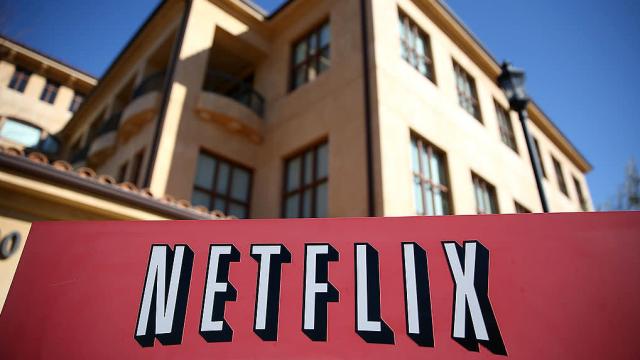Counter to the standard tech ethos — move fast, break stuff, crowbar stodgy old industry players up by their comfortable roots — the fight to control people’s streaming-TV dollars has been more of a slow-motion car wreck, albeit with none of a NASCAR crash’s dark catharsis. And it’s largely been those stodgy old empires doing most of the shoving.
Case in point: Netflix. Although it’s still the leader in U.S. streaming, fast-approaching competition in the form of Amazon Prime and HBO, as well as future threats from Disney+, Peacock, and a litany of other services too vast to name have shaken investors’ confidence in the streaming service so badly that today its stock price officially wiped out any gains it’s made over the year so far, and then some, CNBC reports.
Nothing changed, per se: no disastrous earnings call or investor uprising; Hulu, ESPN and Criterion didn’t announce a $1-per-month joint venture. Netflix’s stock didn’t even dip drastically before crossing this concerning threshold — the damn thing’s just been trending way down since July and kept on keeping on.
Of course, July’s was a disastrous earnings call, one in which the number of subscribers to the service dropped for the first time, ever. Some 130,000 U.S. user departures isn’t much of a drop compared to the 60 million or so paid users Netflix still captures in the U.S., but for a business focused on growth to the exclusions of most other metrics, a shrinking subscriber base essentially sent the message that the service had gotten as big as it could. Is there a path forward for the company that essentially invented streaming TV as we know it?
Arguably there are three things any competitive streaming platform will need: strong intellectual property, prestige, and cash-on-hand to pick up what it doesn’t already own.
While some Netflix properties — Orange Is the New Black, Stranger Things — have appeared to do well, there have been considerably more misses than hits. By some metrics, sitcom mainstays like The Office and Friends not only rule the Netflix most-watched chart in the U.S., but outperform even the best of its originals handily. Contrast that with beloved Pixar and Star Wars content that will live natively on the (cheaper) Disney+, and Netflix starts to look less appealing.
Netflix’s original shows have been losing industry accolades to HBO and Amazon too, both of which performed much more strongly at last night’s Emmy awards. Netflix grabbed a few trophies for When They See Us and Ozark, while Amazon’s Fleabag, HBO’s Game of Thrones, and other competitor tentpole projects outperformed by a noticeable margin.
Which leaves Netflix’s coffers as its last line of defence in a war against the likes of Apple, Amazon, Disney, and hell, Walmart, if we’re going to pretend Vudu is a major belligerent in the streaming wars.
A staggering $590 million to $740 million — what it’s rumoured to have paid for right to Seinfeld — hurts a lot more for a company of Netflix’s size than any of those behemoths, all of which might be content to let Reed Hastings bleed himself dry on usage rights while they post massive growth by essentially subsidising the cost of subscriptions (exactly the way Netflix used to do, and probably still does to some degree after raising its rates, again, in January).
The irony is that Netflix, now the entrenched power in streaming, is getting disrupted left, right, and centre, mostly by the same powers it pulled a fast one on 20 years ago.
It’s going to get messier from here, folks. Personally, I’d sooner reinstall Bittorrent than figure out what the fuck Quibi is.
